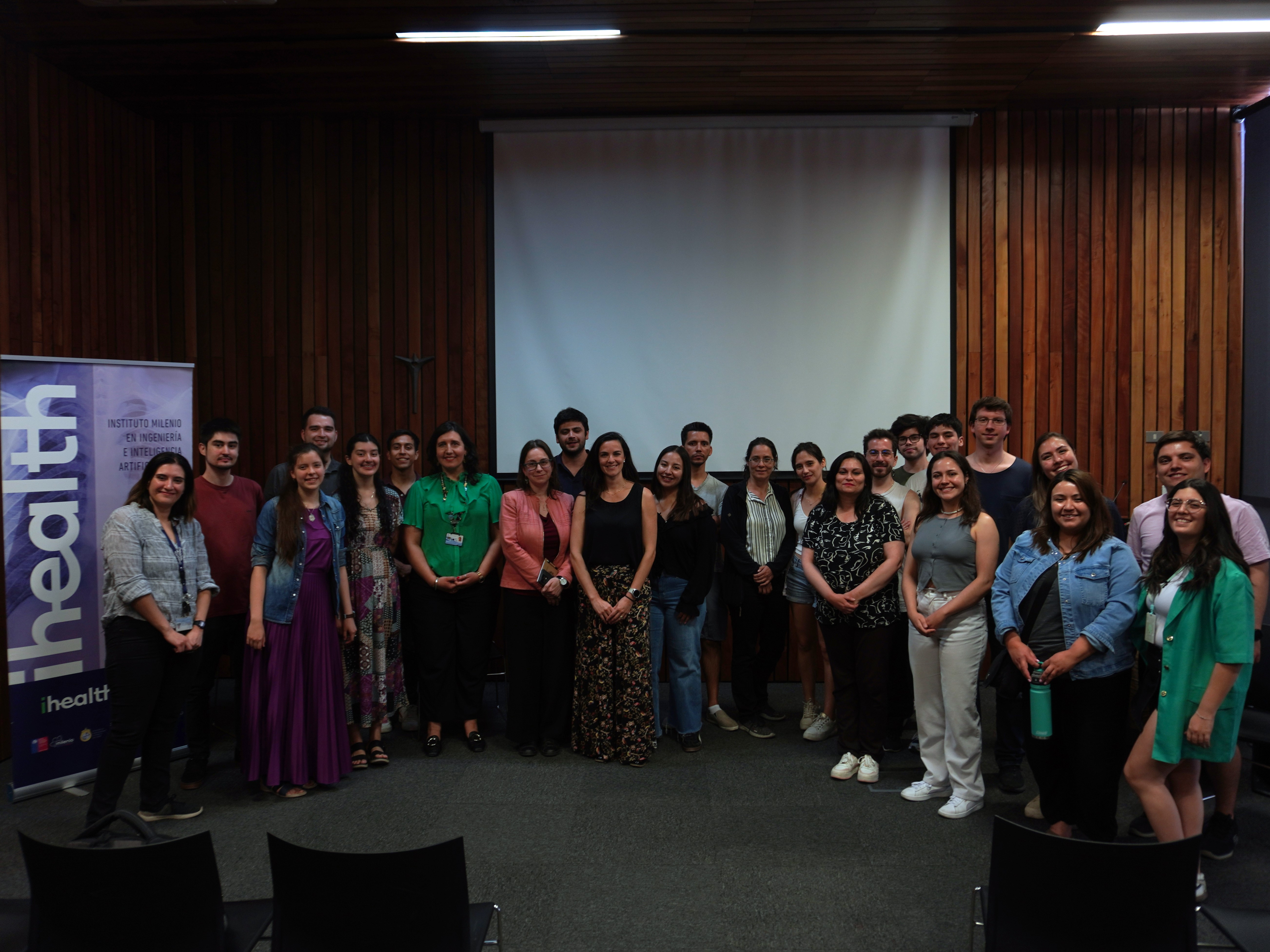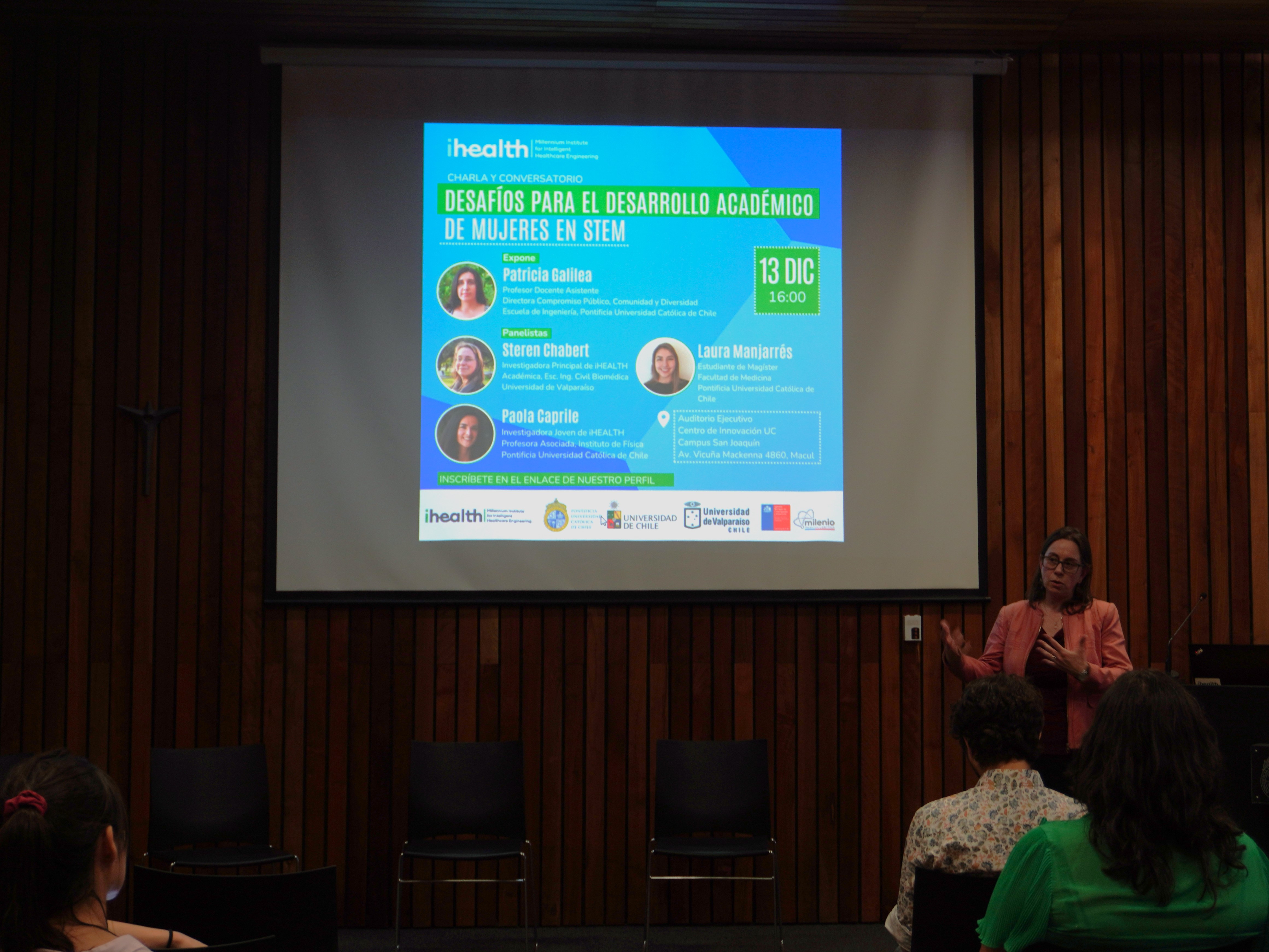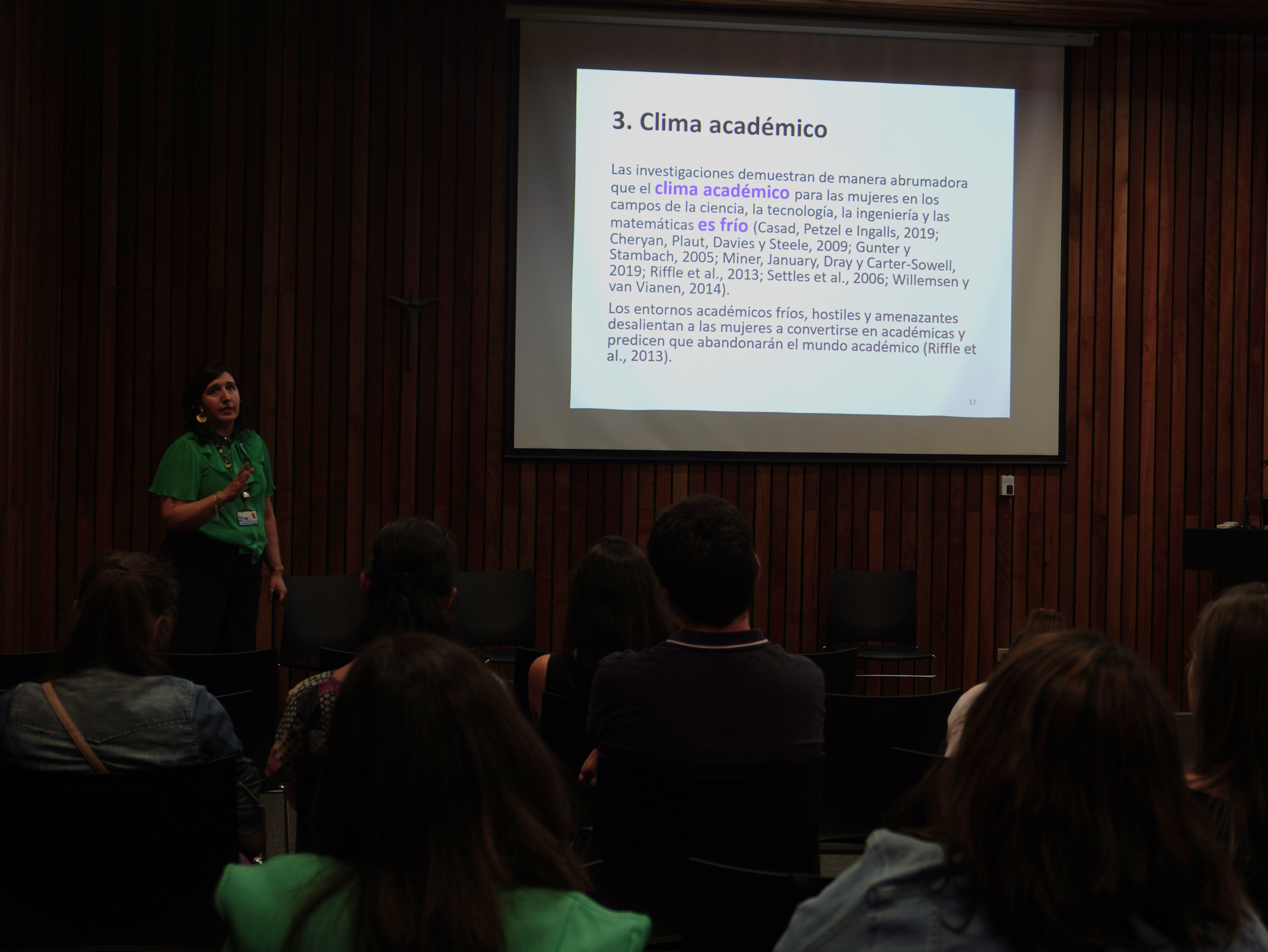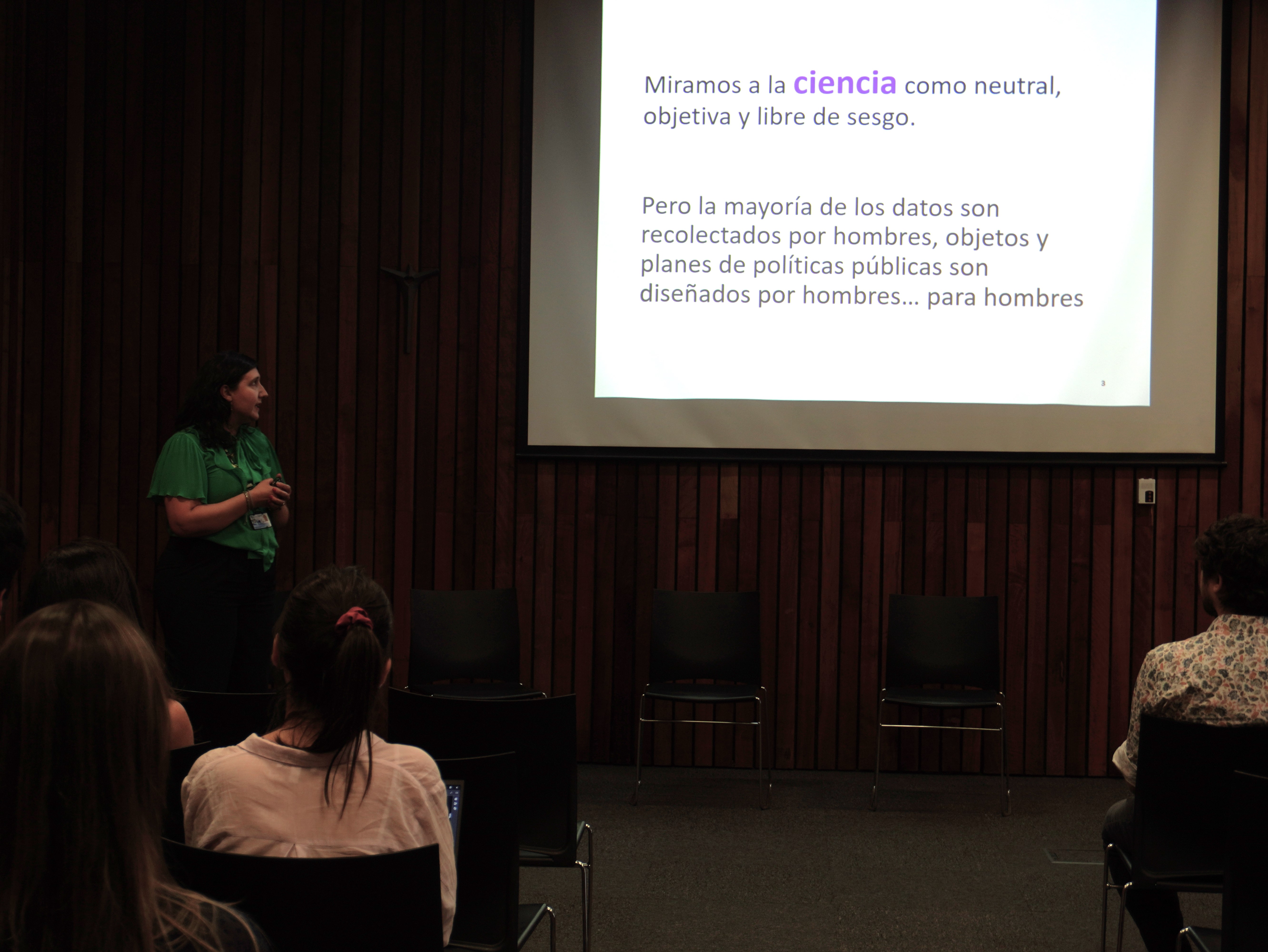Conversation on Women in STEM Inspires the iHEALTH Academic Community
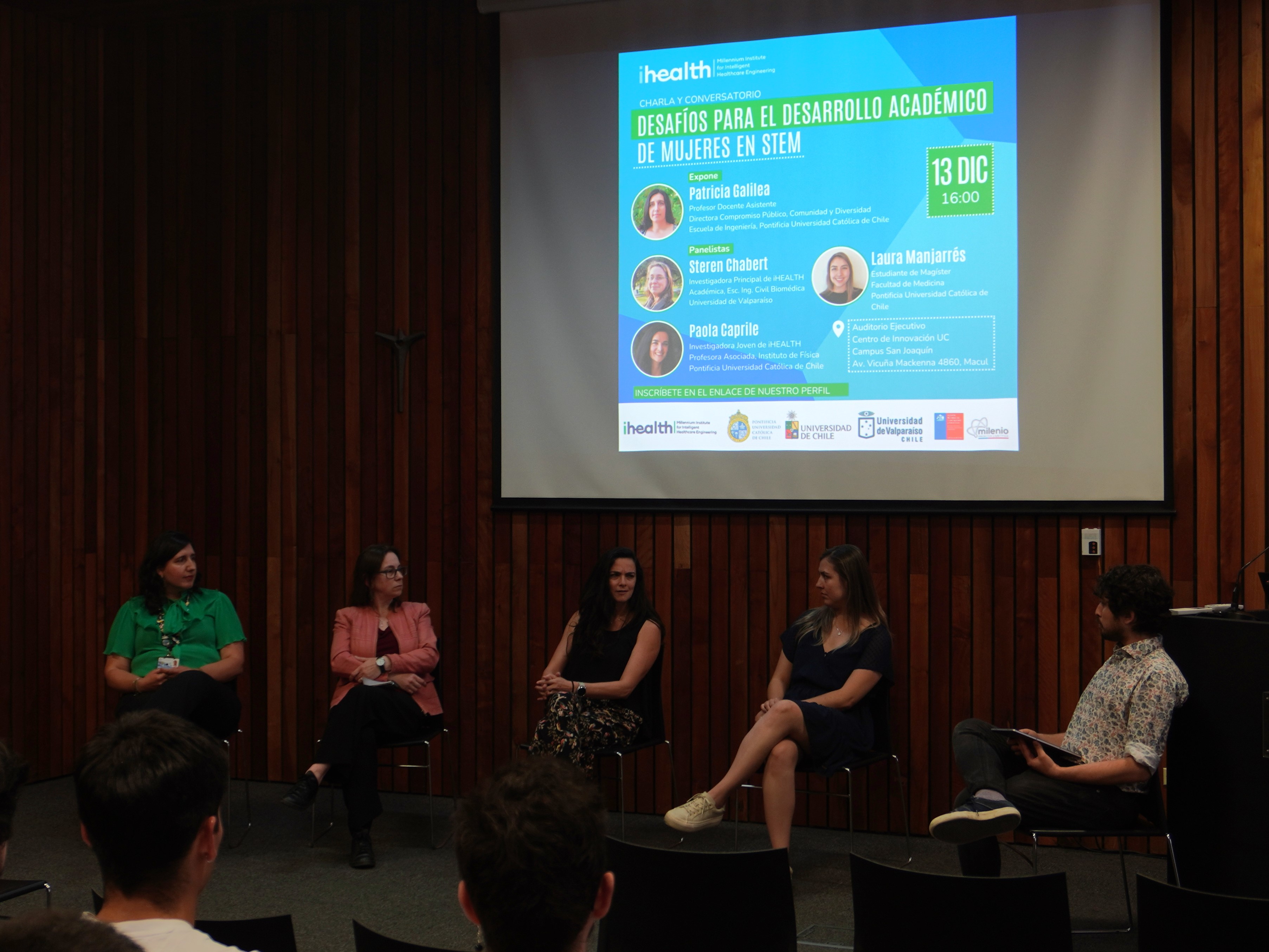
Last Friday, December 13, the Millennium Institute iHEALTH hosted a conversation about the challenges faced by women in STEM (science, technology, engineering, and mathematics). The event, focused on gender equity, featured an introductory talk by Dr. Patricia Galilea and a discussion panel with notable academics, as well as an engaged and participative audience.
The introductory talk, delivered by Dr. Patricia Galilea, Assistant Teaching Professor at the Department of Transport and Logistics Engineering, shed light on the persistent gender gaps in STEM. Among her key points, she highlighted how science, often seen as neutral and objective, remains influenced by gender biases, as policies and data are predominantly designed by men. She also emphasized diversity as a driver of innovation, demonstrating how women engineers have designed safer and more accessible public transportation systems by incorporating their own experiences and addressing specific needs.
Dr. Galilea further explored the causes of gender inequity in STEM, discussing underrepresentation in academia, limited social capital, and unwelcoming academic climates. She pointed out that women face slower promotions, higher teaching and mentoring expectations, and stereotypical perceptions that undervalue traits such as care and community. Moreover, women in STEM often lack access to powerful networks and resources, which hinders their professional growth compared to their male peers. Hostile or "cold" academic environments also discourage women from pursuing or remaining in academic STEM fields.
The discussion panel featured Dr. Patricia Galilea, Dr. Steren Chabert, Dr. Paola Caprile, and Laura Manjarrés. Responding to questions such as "What skills are essential for thriving in male-dominated fields?" and "How can we balance competitive research with fostering diversity?", the panelists shared personal and professional insights.
The conversation highlighted issues such as "forced inclusion," which can undervalue women's contributions, and the lack of female role models, which was a common challenge for several panelists early in their careers. The speakers stressed the importance of taking risks and pursuing goals despite challenges. They also reflected on the emotional and professional toll of mentoring and advocating for women in STEM, while recognizing the necessity of these efforts to foster inclusivity.
The audience enriched the discussion, bringing up topics like equal parental leave policies, as implemented in countries like Sweden, to balance motherhood and academic careers. Another theme was the intersectionality of gender and age, with some attendees highlighting the difficulties of resuming academic studies after maternity, which is a less common experience for men.
This inspiring event underscored the need for a more equitable academic environment. iHEALTH reaffirms its commitment to fostering initiatives that promote women's participation and representation in STEM.
